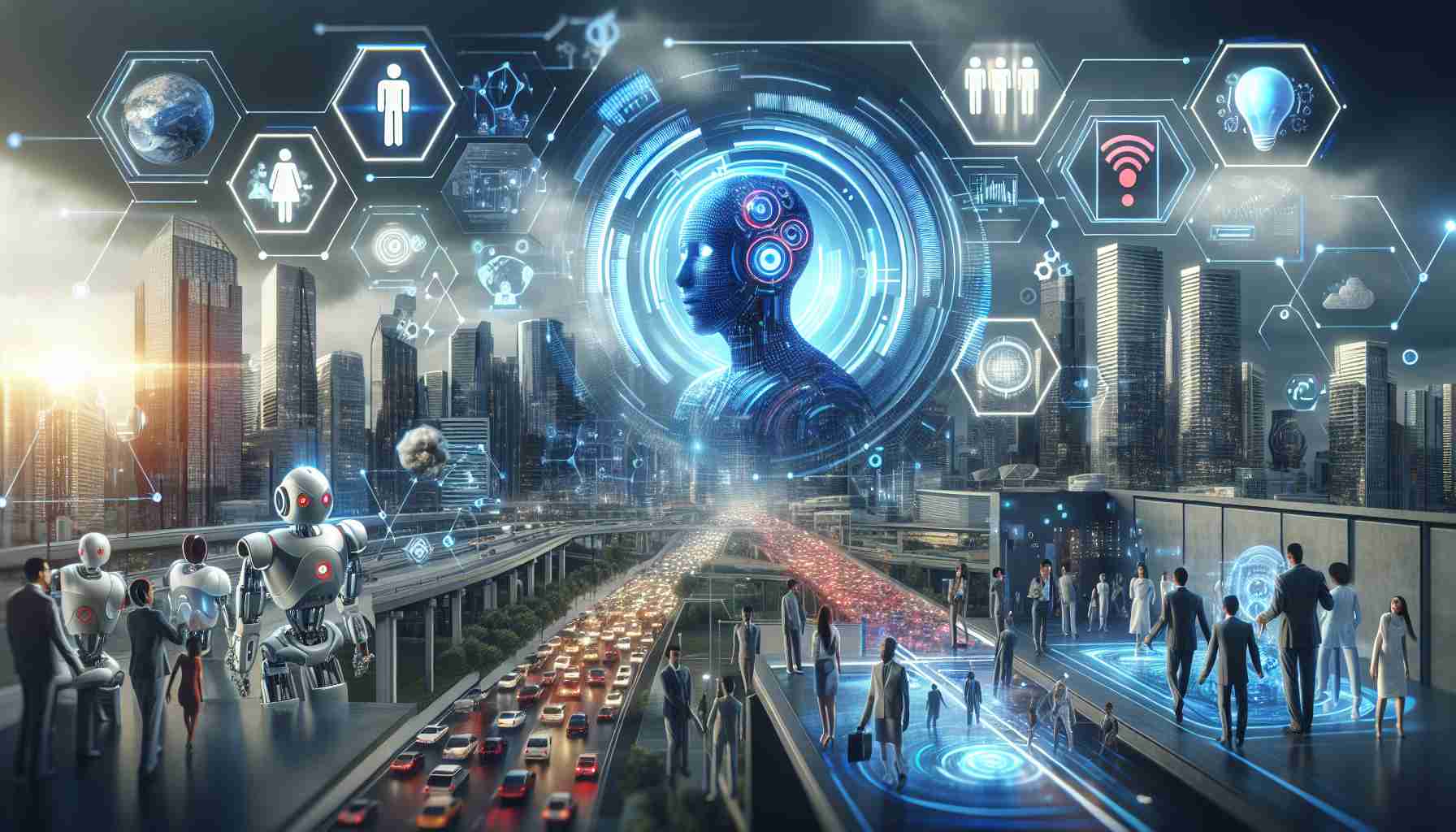Artificial intelligence (AI) has become a transformative power in modern society, yielding a greater impact than monumental historical events like the establishment of the USSR, according to Dr. Kamil Kulesza, founder of the Centre for Mathematics and System Engineering Applications at the Polish Academy of Sciences. AI has accelerated progress and has infiltrated many facets of daily life.
Approximately one and a half years following the inception of ChatGPT, Kulesza has observed AI’s rapid progression, which has surpassed initial expectations. Not just a whimsical display of technology, AI is now deeply embedded in everyday functions such as business operations at McDonald’s and the crafting of quality beers in Belgium. Even traditional businesses understand the necessity to adapt to this technological advancement.
AI capabilities continue to evolve, highlighted by the introduction of Whisper, a system poised to transcribe speech into text with remarkable accuracy, drastically changing both user experience and expert perspectives. As AI development progresses, algorithms have become more efficient, slowing the pace at which massive data inputs are required.
Creative solutions have been explored to overcome the limits of data supply, such as AI-generated content feeding back into the system, although this has led to quality degradation, a phenomenon reminiscent of inbreeding in biology.
The industry is seeing technological breakthroughs, notably in the automation of work. Devin, a system revealed by UpWork, demonstrates that 20% of job postings can be completed from start to finish without human intervention, foreshadowing a future where job opportunities for humans may shrink. AI’s prowess extends into the demanding realm of video game development, indicating a day when it may be more efficient to assign tasks to AI.
With giants like GAFAM (Alphabet, Amazon, Meta Platforms, Apple, and sometimes Microsoft) and IBM integrating AI into their operations, the question looms: what societal changes will ensue when AI takes over most jobs? This open subject is part of ongoing research suggesting that with AI employment, equitable income distribution could be possible within the current economic system. Such findings could redefine economic paradigms and the role of AI in societal structures.
AI is steadily dismantling language barriers, enabling real-time translations and challenging the necessity of learning foreign languages. The teaching profession must adapt to these changes. With the emergence of educational platforms like Khan Academy and the Polish Cloud School, access to high-quality education is being democratized, pushing institutions to reconsider the traditional role of diplomas and certify skills rather than degrees. This shift could dramatically reshape education and the workplace, emphasizing practical abilities over formal credentials.
Important Questions and Answers:
1. How is AI shaping the future of employment?
AI automation has the potential to replace a significant number of jobs, leading to both challenges and opportunities. New job categories will emerge, requiring a workforce skilled in AI and machine learning, while some traditional roles may become obsolete. The challenge lies in managing the transition, upskilling workers, and ensuring economic stability during this shift.
2. Can AI lead to equitable income distribution?
While AI’s impact on equitable income distribution is still unclear, it does offer the possibility of wealth creation through efficiency gains. However, for income distribution to become more equitable, policy interventions and a rethinking of wealth redistribution mechanisms will likely be necessary, including considerations like universal basic income or reformed taxation systems.
3. How does AI affect education and skill-building?
As AI technologies advance, the demand for skills that cannot be easily automated will rise. Education systems will need to adapt to focus on critical thinking, creativity, and emotional intelligence. Online education platforms are expanding access to learning, challenging the traditional emphasis on degrees over demonstrated competencies.
Key Challenges and Controversies:
– Job Displacement: As AI systems become capable of performing tasks traditionally done by humans, there is a risk of widespread job displacement, which could lead to social unrest and economic instability.
– Ethical Considerations: AI development raises ethical questions regarding privacy, surveillance, decision-making biases, and accountability when AIs make mistakes or cause harm.
– Data Privacy: AI systems require large amounts of data, which can infringe on individual privacy rights, particularly if data gathering is not transparent or consensual.
– AI Governance: Establishing appropriate governance to ensure AI technologies are used beneficially and do not exacerbate inequalities is a persistent challenge.
Advantages:
– Efficiency: AI can handle tasks more quickly and accurately than humans, improving productivity and potentially freeing people from mundane work.
– Innovation: AI can lead to new technologies and services that can enhance quality of life and solve complex problems.
– Global Communication: AI-powered translation can break down language barriers, enhancing global collaboration and understanding.
Disadvantages:
– Unemployment: Workers whose jobs are automated by AI may struggle to find alternative employment, particularly in a rapidly changing labor market.
– Security Risks: AI systems can be vulnerable to hacking and other security breaches, which can have widespread negative consequences.
– Biases: AI algorithms can perpetuate and amplify existing societal biases if they’re not carefully monitored and corrected.
Suggested related links to main domain:
– Learn about AI’s transformative effect on society at IBM.
– Discover educational platforms leveraging AI at Khan Academy.
Note that by providing these links, it’s assumed that the URLs to the domains are 100% valid and not subpages. Always exercise due diligence when following external links.

